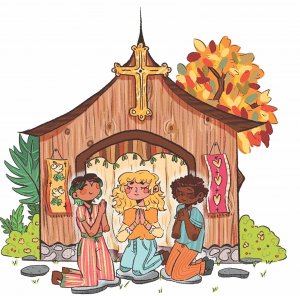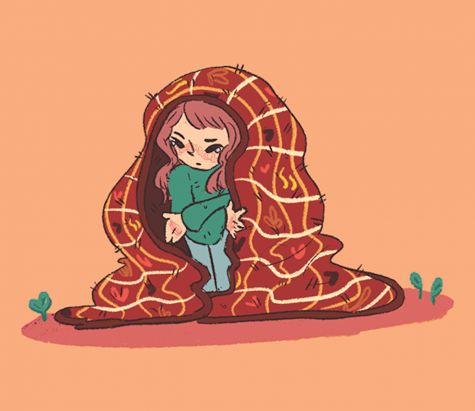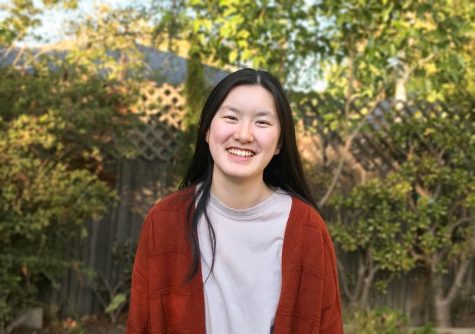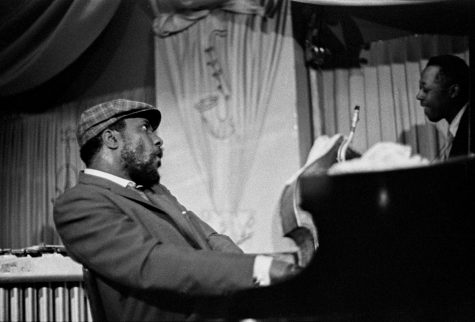Grasping Grief
With grief weighing heavily on people’s shoulders, students look for ways to cope

With masks protecting the spread of COVID-19, wildfires clouding the air with thick smoke and social injustice rampant in America, taking a deep breath has never been so hard.
The widespread sentiment of grief and unprecedented amounts of loss have been damaging to individuals’ wellbeing. Nonetheless, the way in which we process these drastic changes will significantly impact what we carry into our creation of a new normal and is thus of the highest importance.
Pillars of Strength
There are many different ways people can cope with and process all that is going on in the world at any given time. As a member of the Church of Jesus Christ of Latter Day Saints, Paly senior Lindsay Aldous has turned to her religion as a method of coping. She has witnessed the struggle her peers have endured as they process the grief that came with the drastic changes they’ve experienced.
“You always hear people joke about the seven stages of grief, but if you think about it, nobody really teaches you how to deal with those feelings,” Aldous said. “Now that there is a pandemic, there’s information coming out about [grief], and some people are able to get help if they reach out. But you have to be more proactive to find a way to deal with your emotions.”
In these times of struggle, faith has been a pillar of strength for her. “People at our church have been really relying on our faith, our religion and each other,” Aldous said. “Personally, in my family, we have continued our daily Scripture study that we always did before as well as our family prayers.”

Religion empowers Aldous to be hopeful for the future despite the darkness and uncertainty that we face in the present.
“We know that if we rely on God then we’ll have the strength to overcome anything and that we are never alone,” Aldous said. “We will always have support and strength if we need it, we just have to reach out.”
However, she acknowledges that for those without such a safety net, feelings of hopelessness and unprocessed grief can be overwhelming. “I see a lot of people who are struggling … [with] mental health issues during this time and need a lot of support,” Aldous said. “I don’t know what I would do if I didn’t have my faith, my religion to lean on.”
Daniel Chan, a pastor at Chinese Church In Christ in Mountain View, also emphasizes the importance of religion during difficult times. “When bad things happen, we trust that God still has a reason for it,” Chan said. “We might not always understand that reason immediately, but in the grand scheme of things, He’s going to work things out for good.”
Chan believes the Christian view of God as an all-knowing being guides them towards a healthier, more balanced response to hardship.
“The Christian faith is one [in] which we are meant to encourage one another, and we’re called to be part of the church,” Chan said. “[Christianity] gives us peace with God and peace in this world so hopefully our church can continue to grow.”
Kamran Bastani, a Baháʼí Paly junior also believes that your attention to different aspects of life affects your joy. “Baháʼí’s believe in not dwelling on the unpleasant things of life,” Bastani said. “By focusing our thoughts on the material world, we will of course be disappointed and have discontent. But when we when leave doubt and grief behind and rely upon God by focusing on the spiritual, all our grief is replaced with joy.”
Sources of Comfort
Turning to religion is only one of many ways people deal with grief. Many like senior Sabrina Chan, former ASB Wellness Commissioner, have been finding new ways to connect with others and ground themselves as school has moved completely online. “I was in a state of shock during distance learning, and I did not know where to turn,” Chan said.
Coming from different cultural backgrounds, all Paly students are different in the way they treat the subject of mental health and how they reach out for help.

“My family is East Asian and Southeast Asian, and it is very popular to not talk about mental health and talk about how you feel,” Chan said. “Personally, I find talking to my friends a lot easier [than talking with parents about mental health] and I know a lot of others are in the same boat.”
Regardless of how people choose to process their grief and which sources of strength they rely on, finding an outlet that you are comforted by is critical.
“People don’t know where to go, especially if you come from an Asian culture where people don’t talk about mental health,” Chan said. “But the Wellness Center is doing a really good job trying to spread the word about their wellness activities and how you can get help from counselors.”
Michal Ruth Sadoff, a therapist for the Counseling and Support Services for Youth (CASSY) in the Paly Wellness Center, agreed that despite a challenging start to the school year, students have been good at finding ways to connect with others and process their grief over the loss of their old lives.
“Paly students have risen to the situation and shown a lot of resilience and adaptability,” Sadoff said. “I have seen students cope by doing everything from taking up a new hobby, starting a journaling practice, reaching out to old friends and finding ways to help others in their own circle or the community.”
She added that stress is a normal part of life, but chronic stress may be harmful to mental health as it creates a large amount of uncertainty and has cumulative effects.
It’s important to establish healthy coping mechanisms and methods of self care right now, according to Sadoff. “The effort we put into this will stand us in good stead throughout our lives,” Sadoff said.
By connecting with ourselves through healthy coping mechanisms and relying on others through religion, family and other groups, we can feel better prepared to combat the oppressive weight of grief on our lives.
Grief has always been an integral part of the human experience and how we develop, but the pandemic has been especially taxing on everyone’s mental state. “These times are uniquely challenging,” Sadoff said. “We need to realize how much extra energy this takes from each of us as we live each day, and to be gentle with ourselves and others.”

I joined the C Magazine staff because of its commitment to representing diverse backgrounds by telling unheard of and creative stories about our community...









